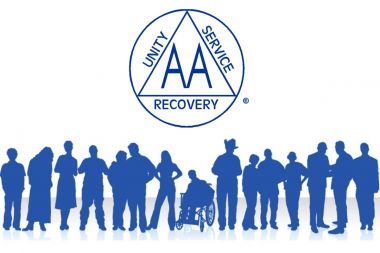Alcoholics Anonymous group removed from directory over Christian emphasis

An Alcoholics Anonymous group has been removed from the organisation's online directory over its emphasis on Christianity.
The group continues to meet in a church in Yeovil, Somerset, but is no longer officially recognised by the AA.
The Somerset Intergroup, which oversees AA meetings in the region, took the unanimous decision to remove the Yeovil group from the directory and make it "separate" after receiving a complaint from a new member who said they felt "uncomfortable".
Minutes from the Somerset Intergroup's meeting describe the "Christian-based meeting" as "lovely but not along AA guidelines".
Concerns were raised about the group declaring that "the only way to recovery is through Jesus" and its use of an AA-recognised pamphlet called 'Came to Believe'. The pamphlet is written by 75 AA members and "offers a range of perspectives on what spirituality can look like in the context of Alcoholics". They speak of a "Higher Power" and "God as we understood Him".
The Somerset Intergroup said the pamphlet "has its place, but not within AA", and that "there is nothing wrong with talking about Jesus but it is not AA".
The minutes also state that the Yeovil group said they were "not going to change" when they were approached about the Christian content of their meetings.
John Palmer, Yeovil treasurer and a former alcoholic who became sober and a Christian through AA meetings in the 1980s, said he was shocked by the decision to de-register the group.
He introduced the Lord's Prayer to meetings a year ago and believes this is behind the complaint.
"AA was founded by Christians to save and transform lives," he said.
"Over the years I have seen Christianity being eroded and marginalised from the organisation as a whole. It is sad to see, and I think AA is having less of an impact on people's lives as a result.
"Of course you don't have to be a Christian to be part of an AA group, but if you cannot say the Lord's Prayer in a church without being treated like this, what are we coming to?
"We were shocked when we found out about the action being taken against us, but we are determined to carry on."
He has turned to Christian Concern in a bid to have the group reinstated.
Christian Concern said that being removed from the directory "essentially makes the group invisible" and would make it "very difficult" for them to recruit new members.
Christian Concern chief executive Andrea Williams said: "The message of the gospel is of a saviour Jesus who came to bring hope to every one of us.
"Separating and punishing Christians so that they cannot attract new members for sharing the gospel message of hope is disturbing and ludicrous.
"Is now saying the Lord's Prayer in a church offensive and not appropriate?
"It is sad, but not surprising in our world of cancel culture, to hear from this group that the gospel message is no longer appropriate for AA and must be kept 'separate.'
"We call on the AA to reinstate this group to the online directory and to recognise the crucial role Christian faith plays in transforming lives."
Tom Fox, a non-alchoholic Trustee of Alcoholics Anonymous, said the Yeovil group was removed because it was "using non-AA approved material" and had presented Christianity as the only route to recovery.
"Alcoholics Anonymous is not a Christian organisation. Many of its members, including myself, are Christians but we've also got members who are Muslim, Jewish, Hindu or of no faith," he said.
"It is an organisation that recognises the value of spirituality. People pray at every meeting and the meetings end with a serenity prayer. People may also use the word 'God' as they understand it.
"But it is not accurate to say that AA has diverted recently from its Christian tradition because as the Preamble makes clear, we are not associated with any particular denomination or sect but rather welcome people from all backgrounds.
"Nor is it accurate to suggest that our acceptance of a variety of different religions is a new thing, because it isn't."











